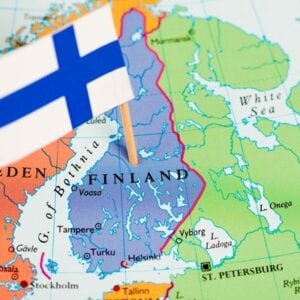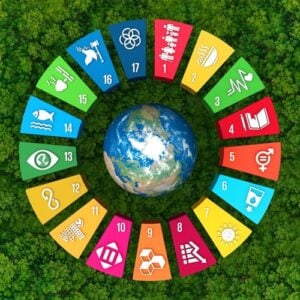The UNDP Human Development Report 2025 poses a pressing question: Are we entering an AI-powered renaissance that advances human development, or are we headed toward a future of inequality and reduced freedoms? This dilemma reflects the growing influence of artificial intelligence, which is shifting rapidly from theoretical promise to a practical tool shaping global development. Its trajectory, however, depends on how it is applied—either deepening divides or tackling humanity’s most urgent challenges.
UNDP has already demonstrated AI’s potential through initiatives across the globe. In partnership with the Global Fund, portable AI-enabled X-ray machines are being used for tuberculosis screening in remote regions, strengthening healthcare access in places like Tajikistan, Turkmenistan, and the Pacific. In over 60 countries, AI has been applied to rapidly assess national biodiversity policies against global targets, streamlining research and enabling governments to prioritize dialogue and action. Another key tool, eMonitor+, is helping more than 25 countries combat hate speech, disinformation, and technology-facilitated gender-based violence. AI has also become central to crisis response, as seen in Ukraine, Myanmar, and Haiti, where it predicts displacement, evaluates damage, and supports recovery efforts. Through the Anticipatory Data Hub, practitioners can now use real-time analytics and conversational AI to better anticipate and respond to risks.
UNDP’s review of more than 50 AI applications has generated important lessons for responsible use. Multidisciplinary teams—combining policy experts, technologists, and mediators who bridge the two—are essential for solutions that address real-world problems. This was evident in projects like coffee traceability in Latin America, where AI-generated data helped smallholder farmers comply with the EU Deforestation-free Regulation. Success required not cutting-edge technology, but collaboration among farmers, officials, forest experts, and digital specialists.
Sustainability of AI solutions also depends on government ownership and local capacity. The Data in Climate Resilient Agriculture (DiCRA) platform illustrates this principle. Initially spearheaded by UNDP’s Accelerator Lab in India, DiCRA now operates as a Digital Public Good maintained by the National Bank for Agriculture and Rural Development. By providing open-access datasets and algorithms, it empowers policymakers and researchers to promote climate-resilient agriculture, ensuring that AI-driven innovation is sustained locally.
Governance is another critical pillar. For AI to benefit people and the planet, investment in ethical frameworks, capacity building, and oversight is vital. Many governments face gaps in technical expertise and limited engagement in global digital policy-making. To close this gap, UNDP and partners are offering training, peer networks, and tools to strengthen AI governance. At the same time, the environmental footprint of AI—rising energy and water demands, along with hardware material use—cannot be ignored. Initiatives like the Coalition for Sustainable AI are fostering collective action to mitigate these impacts. Governance, therefore, is not just technical but fundamental to safeguarding inclusivity, accountability, and human rights.
The report underscores a call to action: the future of AI will depend on choices made today. Through the AI Sprint initiative, UNDP is helping countries build strategies, infrastructure, and responsible ecosystems that ensure AI narrows, rather than widens, inequalities. This commitment was reinforced at the Hamburg Sustainability Conference, where global leaders endorsed the Hamburg Declaration on Responsible AI for the SDGs. However, declarations alone are insufficient—action, partnerships, and broader coalitions are needed to shape AI’s role in sustainable development.
The moment to act is urgent. Whether AI ushers in a renaissance or deepens divides will depend on collective will and global collaboration to ensure that technology works for both people and the planet.







